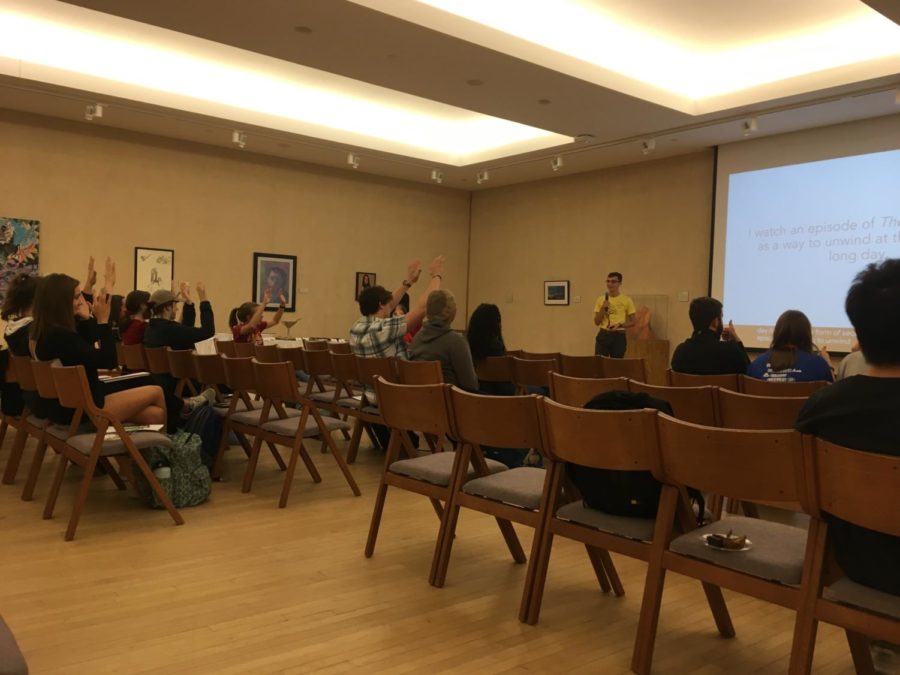Final leaders workshop teaches self-care and group care practices
Lydia Samuelson/ Iowa State Daily
Students raise their hands to vote on favorite self-care methods at the last Leaders Workshop Series session Wednesday.
October 9, 2019
The fourth and final session of the Leaders Workshop Series aimed to define and advise students on self-care and group care Wednesday.
The speaker for the event was Maeve McGuire, senior in technical communications and a peer wellness educator and student coordinator at Iowa State Student Wellness. McGuire was accompanied by co-speaker Blake Lineweaver, senior in agronomy and fellow peer wellness educator. Together, they split the workshop into two sections: self-care and group care.
“These are activities that we wish we would have known as freshmen coming in,” McGuire said. “It was a great opportunity for us to try and show that knowledge to other people.”
During the section on self-care, students were asked to partner up to discuss their individual and cultural definitions of self-care. The small groups shared their conversations about sleep, therapy and meditation with the whole group.
Lineweaveer followed the exercise with a series of powerpoint slides depicting common self-care habits — splurging on a massage, watching a show, socializing with friends — and asked for a show of hands for those who use them.
Lineweaveer pointed out that no singular method of self-care was shared by everyone and students shouldn’t expect there to be.
While Lineweaver and others at Student Wellness said they would love for there to be a go-to method of self-care, different lives require different priorities.
The students watched a video illustrating their priorities as rocks, pebbles and sand poured into a jar representing their time. Rocks symbolized the important things in their lives, which could only fit in their jar if they were poured in before the sand and pebbles — the smaller, less meaningful priorities.
“It really just put things in perspective for me,” said Isis Walker, graduate student in education. “I think that’s nice to share with people who ever feel like they don’t know what’s going on or they’re just kind of doing stuff as it comes along.”
Students then learned about group care. They learned “healthy” exists beyond a personal level, extending also into the workplace. Suggested ways to promote group care that were presented during the workshop included modeling helpful behaviors and informing others of personal preferences, beliefs and strengths.
One of the final activities asked students to create a SMART goal for self-care to bring to someone in a mentor or leadership position. SMART stands for specific, measurable, achievable, realistic and timely. This acronym helped narrow down exactly what a student was looking to improve. Students then shared their goals with a partner or small group.
“What stood out was that most people are like me,” said Charchit Shukla, a graduate student in industrial and manufacturing systems engineering. “They need reminders and they don’t know — I mean, they know what they want to do, but they still don’t do it.”
From self-care to group care, students learned how to maintain and grow a healthy lifestyle. Staying this way, however, does not happen on its own.
“I think the biggest thing about this presentation, especially in regards to Student Wellness, is making sure that you are intentional with all that you do,” McGuire said.







